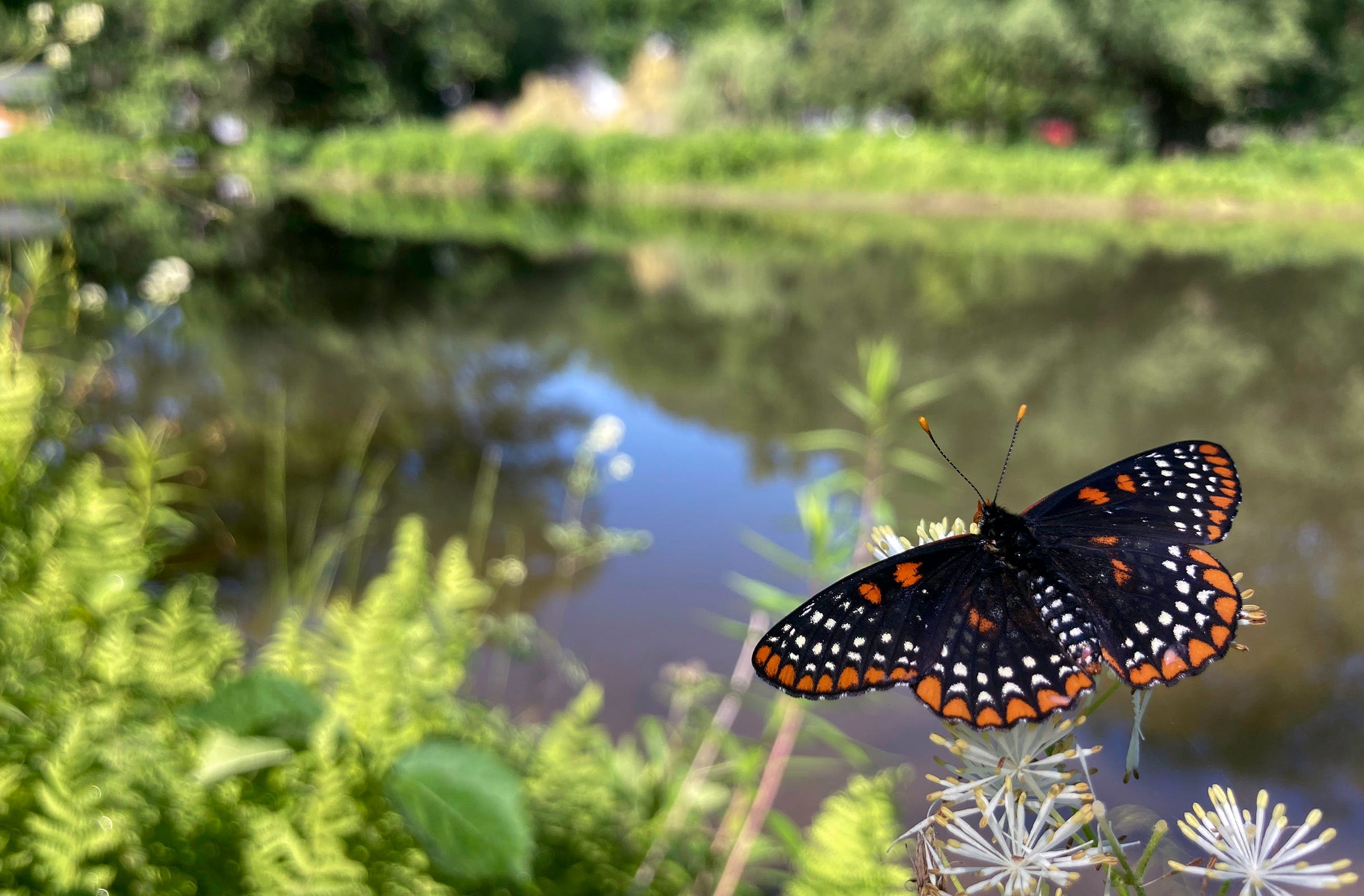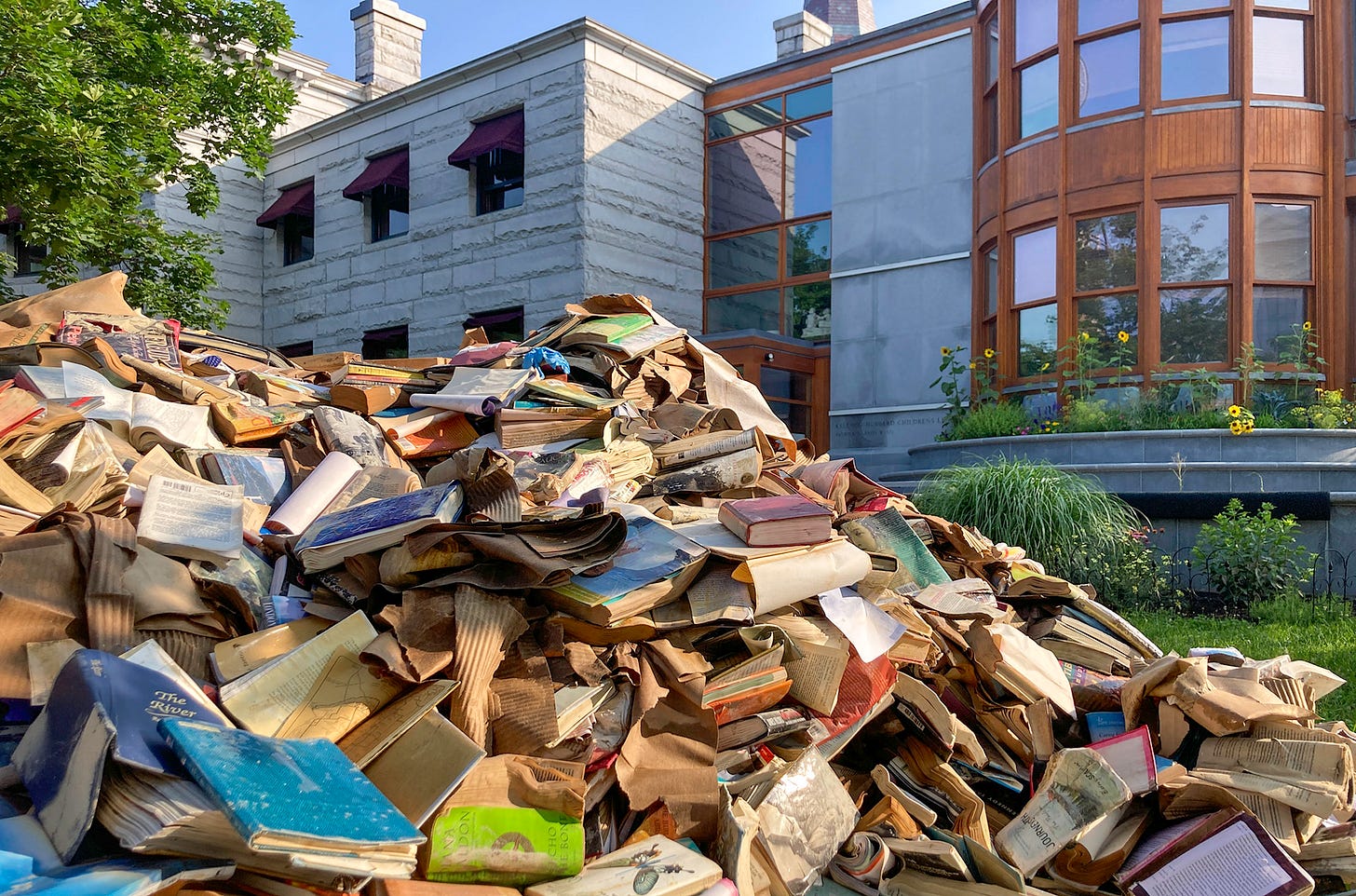After the Flood
Finding hope for a battered city among its books and butterflies
IN THE DAYS before the terrible flood ruined Montpelier, before it devastated our downtown businesses and neighborhoods, I had been visiting now and then with caterpillars living beside the river below my home in the city.
Orange and black and named Baltimore Checkerspots, the spiky larvae had been eating and growing on the leaves of turtlehead, ash, and honeysuckle. Soon enough, I had hoped, each caterpillar would stop feeding, become a chrysalis, and undergo one of nature’s great makeovers to emerge as a butterfly flashing its colors on gossamer wings.
But on July 10 and 11 the rains came to Vermont, and the rivers rose to flood the caterpillars’ leafy plant community — my downtown community as well. Little was spared. The waters came for cafes and bars, banks and shops, city hall and the fire station, our two movie theaters and two drug stores, our hardware store and post office, and too many homes and apartments.
The flood also came for our literature. Montpelier’s public library and two bookshops were devastated. At a time when independent booksellers can be, like wildlife and wild places, threatened or endangered, piles of soggy books were, apart from the human suffering, among the more poignant casualties of this disaster.




